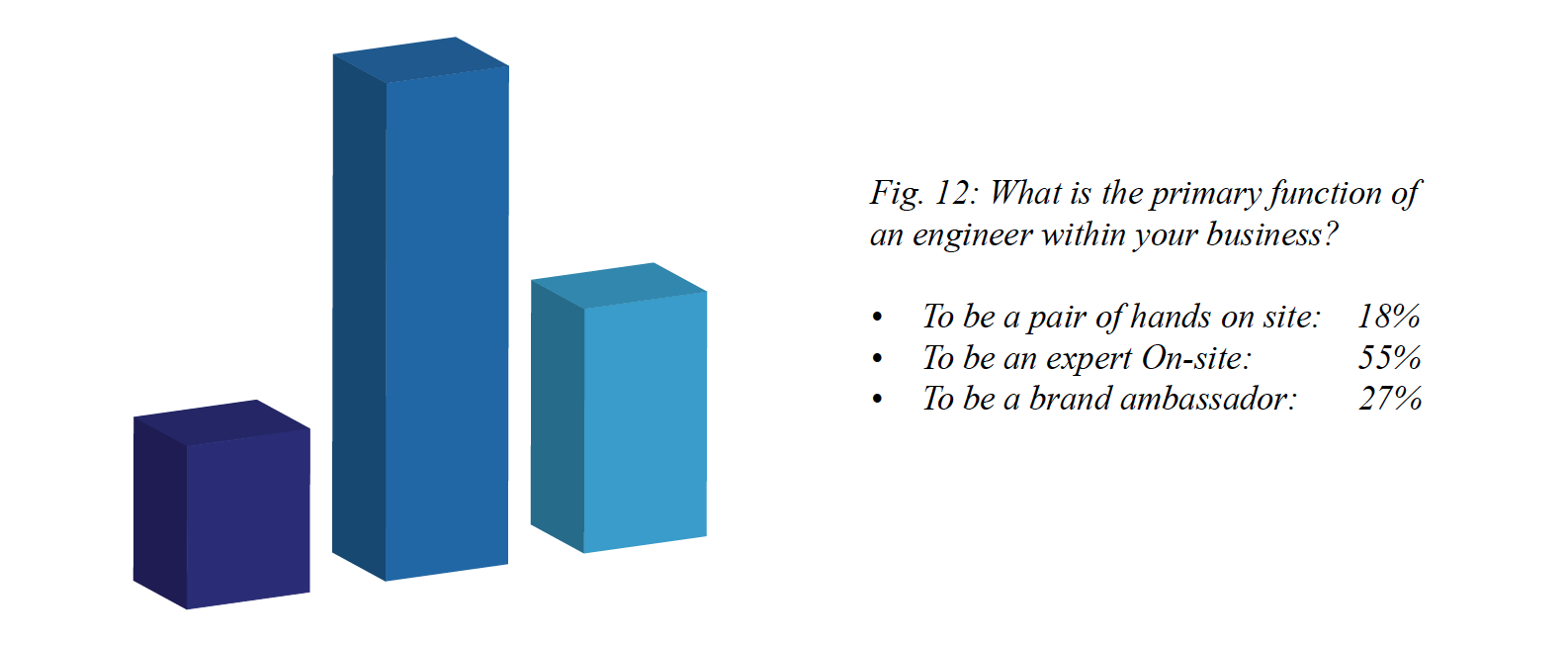In the last feature in this series reflecting on the findings of an exclusive Field Service News Research project run in partnership with FieldAware, we looked at whether the pandemic had impacted field service organisations relationships with their engineers, now we look at where these organisations see the value of the service engineer…
It is clear within the study, that the field service engineer and technician is not only highly valued within most field service organisations, but they are also well connected to and able to easily communicate with both peers and management alike. So, having established that value, lets us take a moment to dig deeper and break down what that value is founded upon.
In the light of such findings we can also take a look at how central the engineer is to the technology ecosystem. One of the hall marks of the best-in-class field service management systems is the ability to deliver knowledge and expertise to the engineers when they need it most.
We took a moment during the study to understand how field service organisations are managing this task.
The largest segment of the companies in the study, which accounted for nearly half (48%) of field service companies utilise peer-to-peer coaching to achieve this. The second most commonly cited method was via an online knowledge base which over a quarter (27%) of companies utilise while just under a fifth deliver knowledge to their engineers via a mobile application. Only 4% of field service companies are still providing their engineers with onsite manuals.

We asked the respondents in the study what was the primary function of the field service engineer or technician within their respective businesses? For over half (55%) of companies the primary function of the engineer is to ‘be able to trouble shoot problems and identify resolution that couldn’t be found through initial triage i.e. to be an expert onsite’.
For almost a third (27%) of companies the primary function of the engineer is ‘to interact with the customer in a professional manner and identify additional service revenue opportunities i.e. to be an ambassador onsite’. The smallest response group here which was just under a fifth of companies (18%) stated that for them the primary role of the engineer was to ‘implement a fix based on fault analysis that leverages machine data and remote expert interaction – i.e. to be a pair of hands on site’. (Figure 12 above)
This set of findings within the study are strongly juxtaposed with earlier findings relating to the rapid adoption of tools that provide the service provider with the capability to deliver remote service offerings, as well as the findings that the majority of service organisations see remote service delivery as a new revenue stream.
It is clear from the responses to this particular question that the large majority of field service organisations see far more value in the service engineer than being a physical asset ‘a pair of hands on site’. In a world of remote-first service delivery that many are predicting, this would appear a significant part of the engineer and technicians’ value being sacrificed?
Once again we appear to be building a case for the emergence of a hybrid model of service delivery that finds the balance between the rapid effectiveness of remote-service delivery and the deeper value of the field service visit bringing the expert knowledge and insight directly to the customer on site.
 Want to know more?
Want to know more?
You will find the full paper in the premium resource library.













